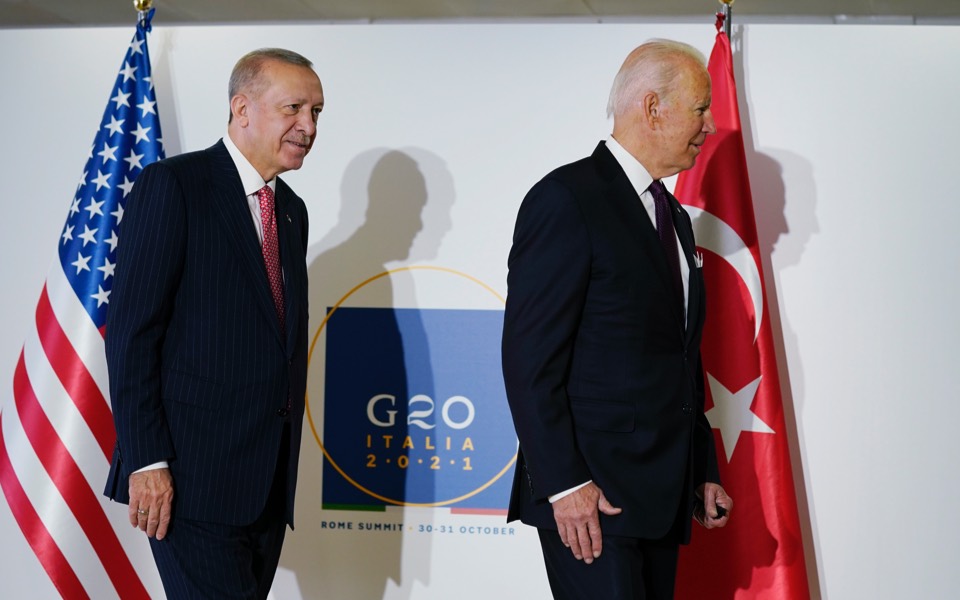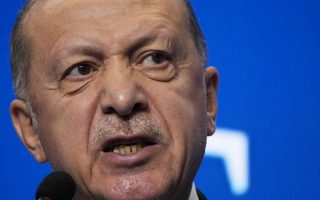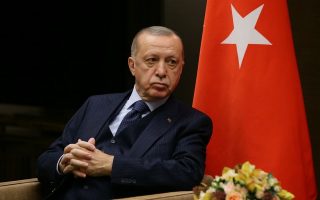A recontextualization risk for Greek-Turkish relations

Greek-Turkish relations, as well as the Cyprus question, might be under a recontextualization risk in 2022. Such a recontextualization will perhaps entail their submission to developments that will take place in the sphere of relations between the US – and consequently the West in general (if we accept that the West is a strategic entity) – and Turkey.
Even this difficult relationship between NATO member-states will be fundamentally affected by the curve drawn by relations with the US and the EU on the one hand and the Russian Federation on the other, mainly due to developments in Ukraine. Obviously, the strategic positioning that the US and China are pursuing in their relations with each other are placed in the background of all this. In this dipole, the US would obviously want a friendly or at least a neutral Russia.
The thread running through these successive and interconnected levels is the test of strategic choices that tend toward stabilization (this has not yet happened though) and the effort of all critical players to form favorable power relations and to position themselves within the new correlation in the safest and most advantageous way.
Entities subject to the internal constraints of a liberal democracy, such as the US and the EU, and entities that have total control over their internal political processes without democratic sensibilities and rule of law adherences, such as China and Russia (although the two are not constitutionally similar) clearly coexist in such a scheme. In the broader context, Turkey knows that its relationship with the West majorly depends on the respect of even the basic elements of a liberal democracy. The deep economic crisis it is going through is the element that will determine the political behavior of a complexly stratified society, which, no matter how influenced it is by nationalist outbursts, is concerned about its standard of living and its purchasing power. If this institutional framework is overturned, then it will be likely that the very framework of the West-Turkey relations will be overturned. Turkey, under pressure of necessity, might choose to normalize its relationship with the US and consequently with the EU instead of continuing on the path of exceptionalism and tensions. Even under the version of an internal political change, nothing in the Turkish opposition foreshadows a change of attitude on the issues that are decisive for Greek-Turkish relations and the Cyprus question.
Nevertheless, Turkey’s degrees of strategic flexibility and distancing from the West depend on the alternatives offered by its contradictory relationship with Russia (cooperation and conflict on various fronts, from Syria and Libya to the Caucasus and Ukraine). At the present stage, however, Russia itself is moving on the difficult chessboard of strategic repositioning of its relationship with the West. For the purposes of this repositioning Russia has deployed its most important weapon, which is its energy resources, especially natural gas, while the tension with Ukraine has reached an extreme point.
At the same time, Russia’s energy blackmail, which is directed at the US (although Europe is its victim) and “strategic trenches” fights between the US and Russia in Ukraine, brings the EU to the limits of its own strategic identity and independency.
Greece is not a mere observer of this complex, contradictory and fragile picture. It participates in it as a member of NATO, as a strategic partner of the US, as an EU member-state, as a trading partner of Gazprom, as part of multilateral cooperation schemes in the Mediterranean, as a neighbor of Turkey, with which it is called upon to coexist in the region without a delimitation of the maritime zones of the continental shelf and the exclusive economic zone and with the Cyprus issue remaining unsolved.
In such a setting of multilevel strategic uncertainty that starts from the global and reaches the regional scale, with all the critical players facing crucial dilemmas, while several of them face great internal pressures, Greek-Turkish relations seem to be losing their degree of criticality. This is an illusion, however. The inclusion of Greek-Turkish relations, but also of the Cyprus problem in this multilevel pattern of strategic uncertainty and the search for new positioning by all actors, seems to make the problems or at least their contexts even more complex, but at the same time discourages initiatives on the part of the directly concerned parties.
Besides, in Greek-Turkish relations, as in the Cyprus issue, there is a rich experience from the Cold War era that reminds us of the way in which international correlations influence regional problems and the way in which a regional crisis is encouraged or the way the regional momentum for overcoming it appears through the fluctuation of correlations at a higher level. When the US is called upon to face challenges to its own security, it only makes sense to seek the broadest possible alliances and partnerships, and thus it becomes much more tolerant of divergent regional behavior. In this attitude, they are practically dragging their European partners along with them. We should never forget these simple action sequences.
The two-and-a-half-year period of almost constant tensions in Greek-Turkish relations, spanning from the summer of 2019 to the present and the hole that seems to have formed regarding the Cyprus issue following the talks at Crans-Montana, force us now, at the beginning of 2022, to make a serious, calm and realistic assessment of the landscape that has become more complex and more fragile. In so doing, we need to always keep all channels of communication open, such as exploratory talks with Turkey, as well as respond seriously to all initiatives of the UN secretary-general on the Cyprus issue. A fundamental prerequisite of seriousness is to have a clear sense of what we really want, on all issues. The first thing we should want is to prevent the downgrading of Greco-Turkish relations and the Cyprus problem to issues we watch as spectators. Obviously everything is influenced by international and regional correlations, but if an issue takes on secondary status, it can lose touch with historical time, as there is the illusion that it is following the evolution of issues of greater importance, when in truth it is simply frozen while historical time keeps passing.
Evangelos Venizelos has formerly served as Greece’s deputy prime minister, minister of foreign affairs, minister of national defense and president of the PASOK party.





